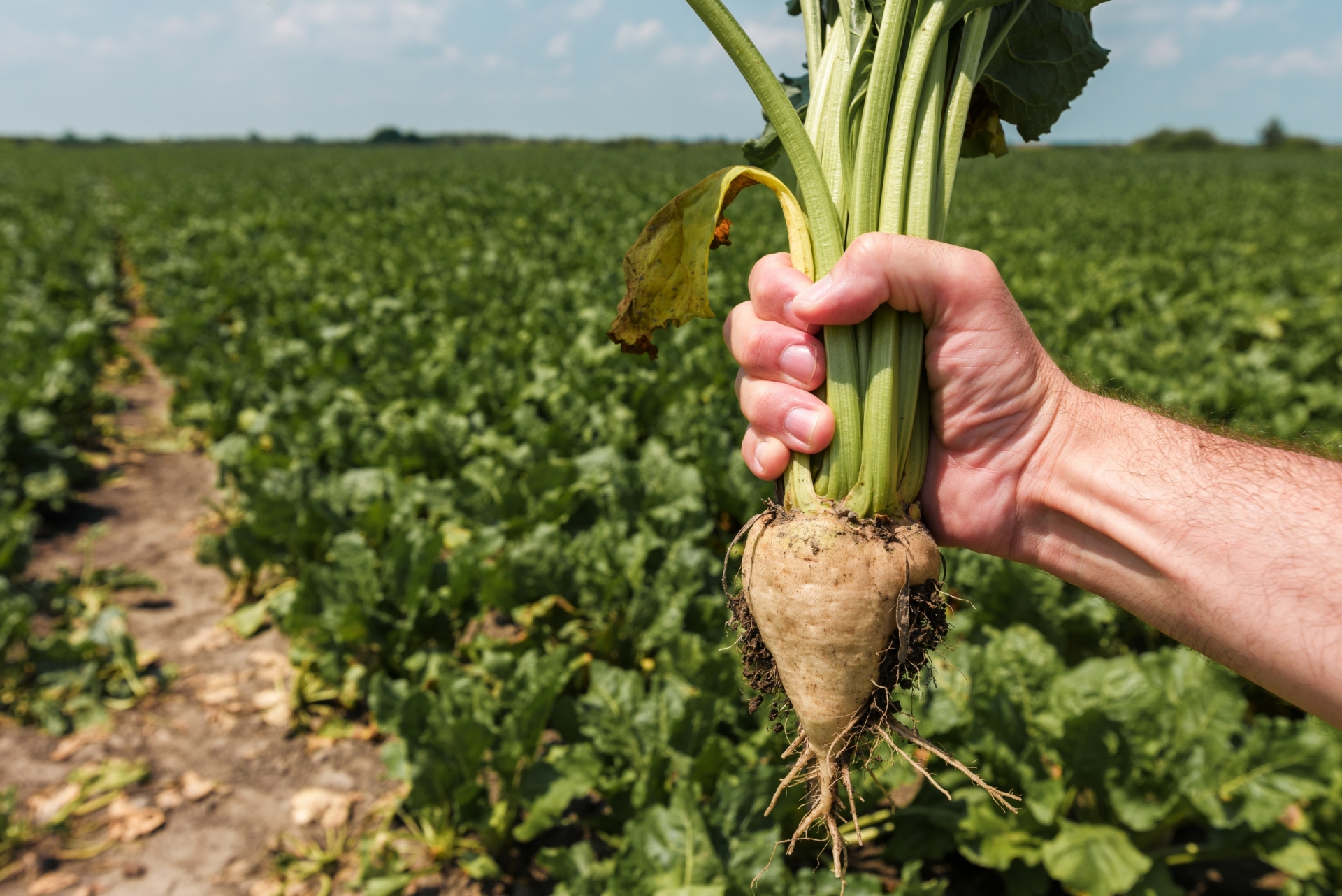Introduction
- belongs to family chenopodiaceae is the biennial crop.
- The plant is most efficient converter of solar energy into the stored food materials.
- It is the important sugar producing crop in which sugar is stored in its roots.
- It accounts for nearly21.8% of world’s sugar production
- On an average the sugar containing of beet root is 15-16%

Economic importance
- The root of sugar beet contains about 75% water 20% sugar in the form of sucrose and 5% pulp.
- The pulp is soluble in water and contains cellulose ,hemicellulose and lignin.
- Dry pulp contains 60% carbohydrate and 10% crude protein thus can be used as important livestock feed.
- The mixture of molasses and pulp improves the palatability of the feed.
- Beets tops are highly nutritious cattle feed and are known to increase the milk yield of cow.
- It is potential source of ethanol which is now blended in automobile fuel.
Origin and History
- Sugar beet originated in Mediterranean region.
- The wild Beta maritima an annual occurring in the coastal region in the Mediterranean and Asia is the common ancestor of several cultivated beets of today.
- Its medicinal value was first reported by German physician Hippocrates.
- The use of sugarbeet for the extraction of sugar was first to be reported in 1747.
- In 1746 German Chemist Marggraf found that the crystal formed from sugarbeet has physical and chemical properties with those of the sugarcane.
- Franz Karl Achard discovered that white skinned and fleshy type beet has the sweetest test.
- Louis Vilmorin in France selected the progeny test method and raised the sugar content from 7.5% to 16-17%
- By 1880 sugarbeet had practically as high percentage as varieties of today.
Area and distribution
- Sugarbeet is essentially a crop of temperate region.
- It is commercially grown in European countries, U.S.A and Canada in North America, Chile in South America, Egypt and Morocco in Africa, China ,Iran, Japan, Pakistan ,Syria in Asia.
- It is cultivated over an area of 4.6million ha with the total production of 228.4 million tons of beet.
- According to FAO(2011) the leading producer of sugarbeet are Russia, France, USA, Germany, and Ukraine.
- The average world productivity of sugarbeet is 58.2t/ha.